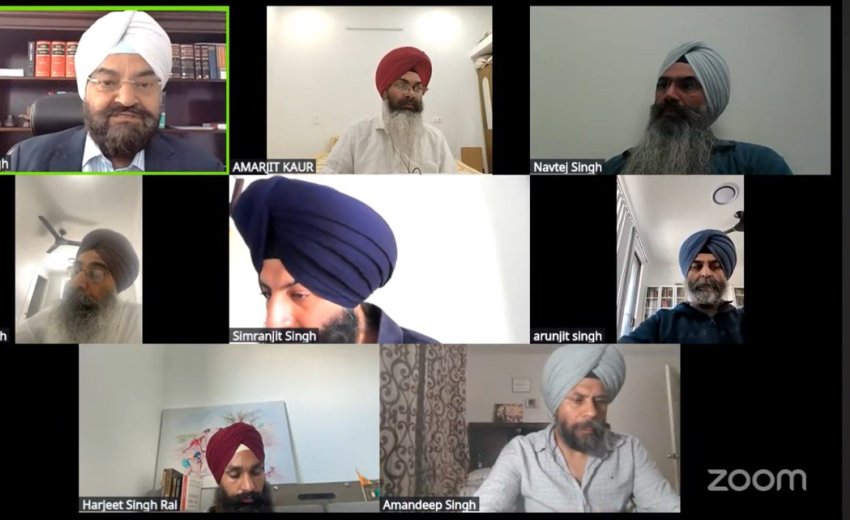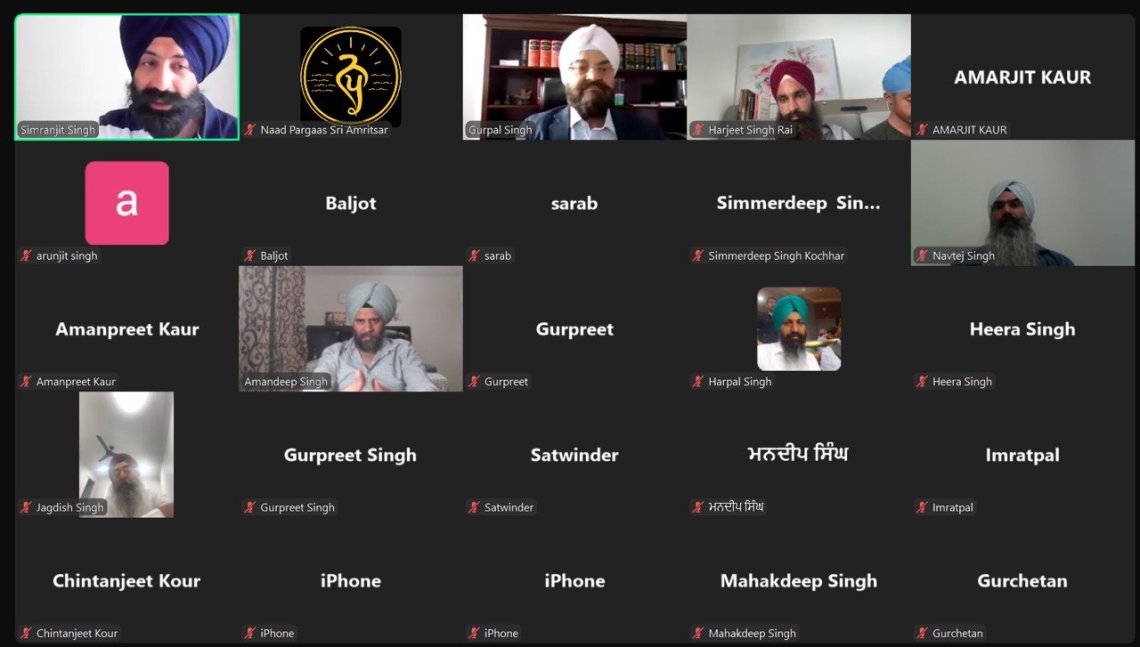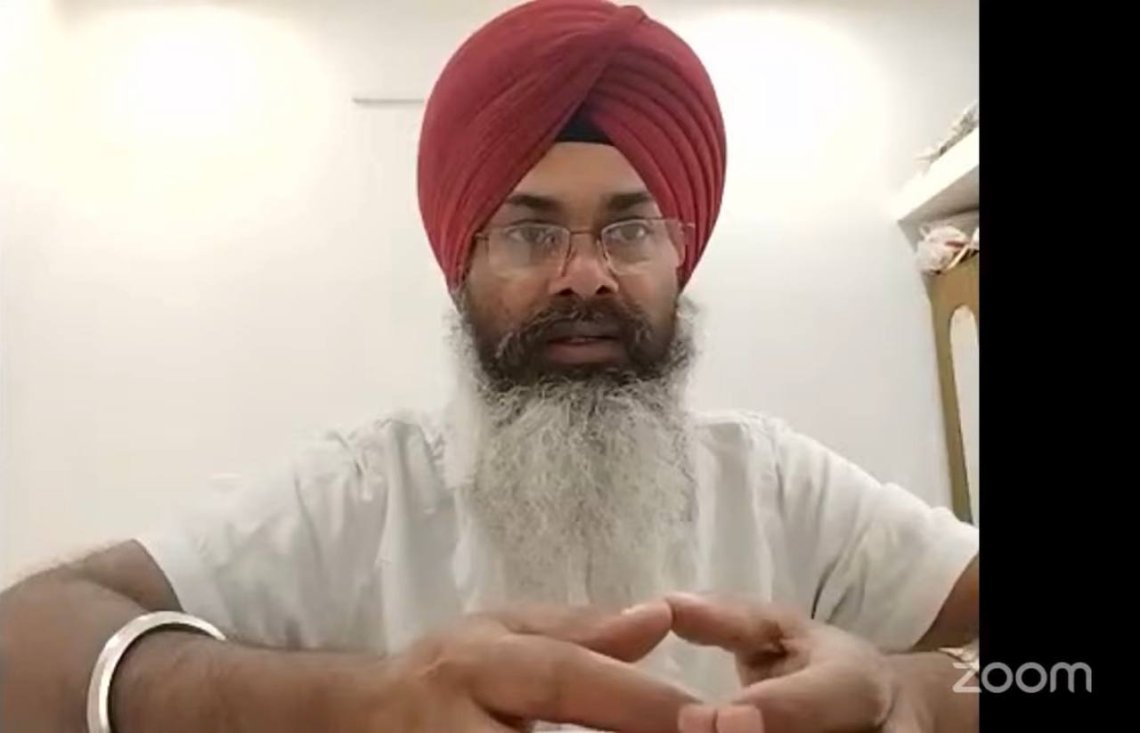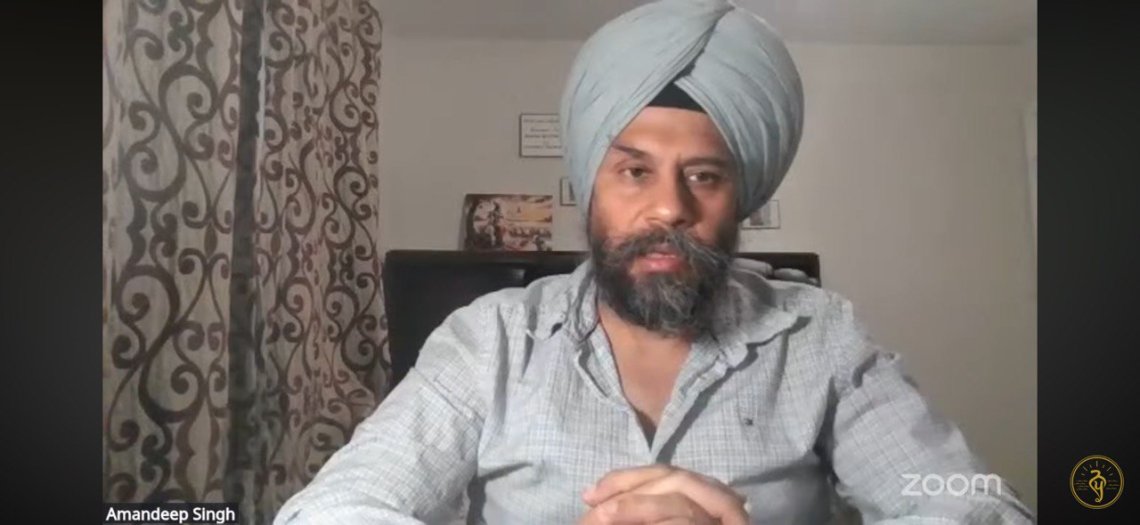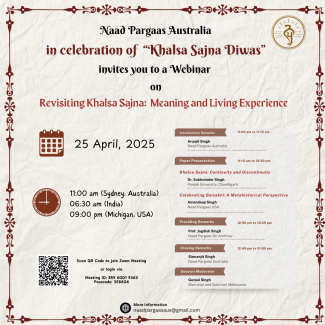Sydney, Australia — On April 25, 2025, Naad Pargaas Australia marked “Khalsa Sajna Diwas” with an international webinar titled ‘Revisiting Khalsa Sajna: Meaning and Living Experience’. The virtual event brought together scholars, researchers, and community leaders to explore the historical, philosophical, and contemporary dimensions of the Khalsa, fostering a vibrant exchange of ideas across continents.
Hosted by Gurpal Singh (Barrister and Solicitor, Melbourne), the webinar commenced with introductory remarks by Arunjit Singh, who addressed the challenges faced by Sikh diasporic communities in preserving cultural and philosophical identity. Emphasizing the need for ‘hybrid connections’ between aesthetics and philosophy, Arunjit underscored the importance of creating authentic creative space for future generations of the community. He highlighted Naad Pargaas’ role in driving intellectual growth through its conferences, publications, and engagement with global philosophical discourses.
Dr. Sukhwinder Singh (Panjab University, Chandigarh) presented his paper on “Khalsa Sajna: Continuity and Discontinuity”, advocating for a nuanced understanding of the Khalsa’s identity. He explored the balance between “softness” and heroism in the Khalsa’s ethos, while critically addressing the representation of women in Sikh tradition. Dr. Singh invoked the notion of Matri Nem (Mother Principle) as a foundational concept and called for greater inclusivity in narratives surrounding the Khalsa. His insights sparked calls for deeper academic exploration of gender dynamics in Sikhism.
Amandeep Singh (Director, Naad Pargaas USA) delved into the theme through his paper “Celebrating Baisakhi: A Metahistorical Perspective”, examining history as an expression of collective consciousness. Drawing parallels between Sikh initiation (Amrit) and concepts like Christian baptism and Hindu Moksha, he emphasized the Khalsa’s role in transcending linear notions of time and progress. Amandeep’s discourse on the “paradox of life and death” and the Khalsa’s ever-expanding cultural significance resonated deeply, prompting further dialogue on Sikh hermeneutics and historiography.
Following the talks, the discussion, moderated by Gurpal Singh, delved deeper into the adaptive and evolving nature of the Khalsa. First, Harpreet Singh commented on the presence of the voice of women in Gurbani and emphasized its theoretical underpinnings as a concept. Jaswinder Singh, a researcher from Jamia Millia Islamia, New Delhi, then posed a question to Mr. Amandeep Singh, inquiring whether Sikh tradition offers its own model of history—one distinct from the Western notion of linear progression and more closely aligned with the Sakhi tradition—which could provide a different perspective on unfolding the event of the Khalsa.
Dr. Harpal Singh from Central University Kashmir emphasized the often-overlooked dimension of the Khalsa’s inherent softness, contrasting it with its commonly recognized warrior spirit. Heera Singh, a researcher from Punjabi University Patiala, critically reflected on the use of the term ‘event’ by the speakers, pointing out the importance of being mindful of its philosophical implications in both Western and Eastern traditions, and urged deeper engagement with how this understanding can inform our interpretation of the Khalsa event. The session concluded with remarks from Navtej Singh, who commended the academic initiatives of the Naad Pargaas organization in promoting and nurturing the Shabad tradition.
In his presiding remarks, Prof. Jagdish Singh highlighted various perspectives on Sikh history and culture, including colonial, nationalistic, and Marxist viewpoints. He highlighted the limitations of these perspectives and emphasized the need for a more nuanced understanding of Sikh history.
In his closing remarks, Simranjit Singh thanked participants and underscored the value of such dialogues in revitalizing Sikh intellectual traditions. As the global Sikh community reflects on the Khalsa’s legacy, this webinar serves as a catalyst for renewed scholarship and unity in an ever-evolving world.
The webinar concluded with a consensus on key priorities for advancing Sikh scholarship, emphasizing the urgent need to address diasporic challenges through hybrid cultural-philosophical frameworks, amplify women’s voices and inclusivity within Sikh narratives, and reinterpret Sikh history using metahistorical and consciousness-centered approaches, alongside a call for young scholars to pioneer innovative models in Sikh studies. To translate these discussions into action, Naad Pargaas Australia announced plans to organize future seminars connecting Australian Sikh scholars with global dialogues and foster academic collaborations to deepen exploration of themes such as gender, diaspora, and hermeneutics, ensuring sustained engagement with the evolving discourse.
Watch the complete session by following this link:
https://youtu.be/fB6rvV2qiqw?si=7OorELstpNI6UHgD
For updates on upcoming events, visit [email protected] .
